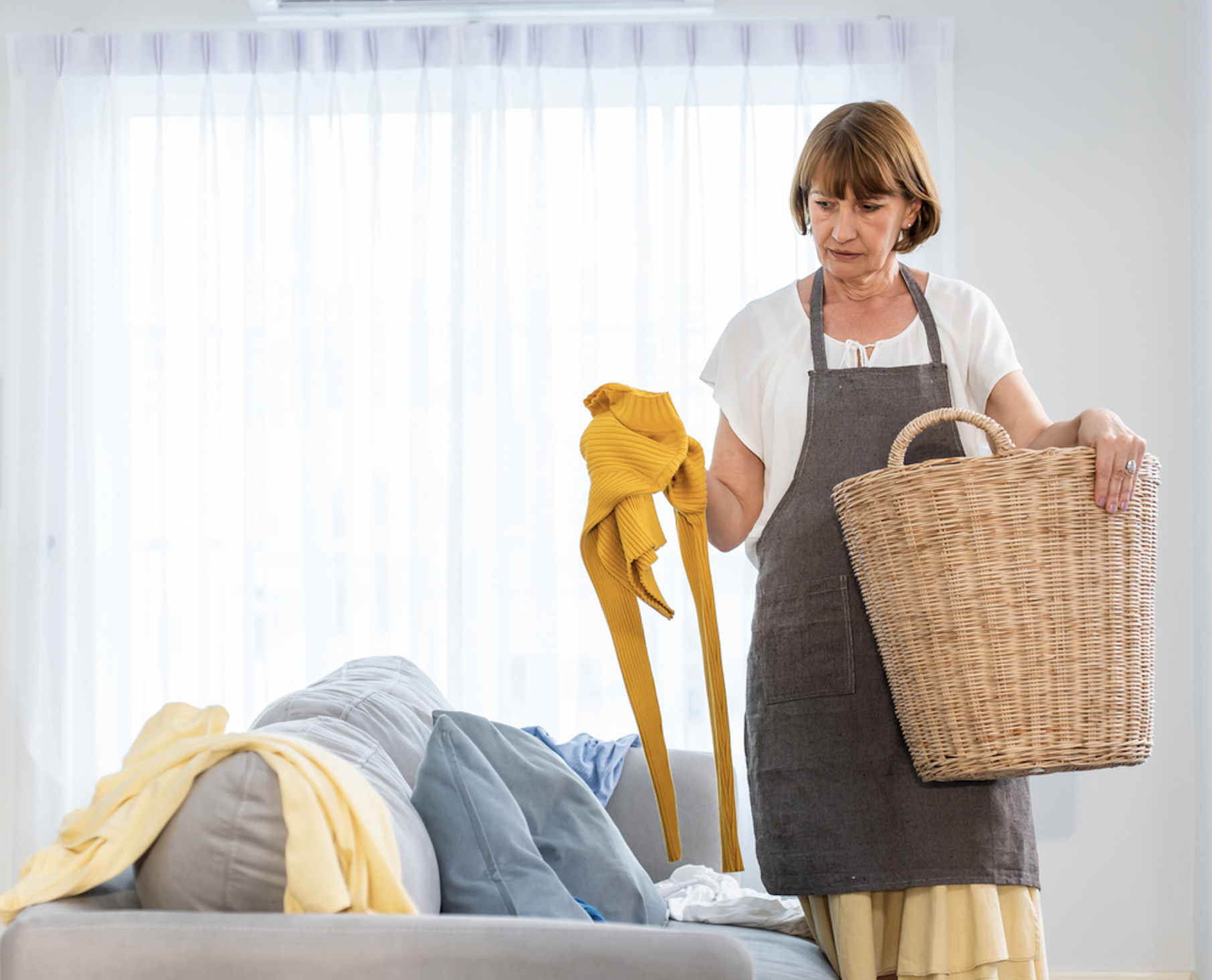Clean Enough: Revising Your Ideas For Decluttering
March 27, 2024

It’s that time of year when many of us hope to sweep out the remnants of winter from our homes and open up the doors and windows to let the spring weather in. In addition to spring cleaning, there is often the desire to declutter, dispose of, or donate possessions that are no longer used or no longer serve your interests. Over the years we’ve posted numerous articles offering an array of strategies for dealing with your clutter: whether it’s starting small in a discreet room for an easy “win”, or selling or giving away items through the Facebook marketplace, there are any number of ways to streamline your possessions, organize your house and even improve your mental health in the process. For an updated list of places to responsibly donate your discards, grab a shopping bag and look here.
But in reality, significant decluttering is not easy or even possible for many of us. Putting aside those who have the psychological disorder of hoarding, there are mental health reasons why putting your home together in an organized way may just not be feasible. Exhaustion from physical or mental illness may leave you too fatigued to clear away clutter or keep up a household. Moreover, if your house has become overwhelmed from disarray or disorganization, adding to feelings of stress or fatigue, it is that much harder to clean up and clear out the clutter. Some of us lack the motivation to change our environments or may strive for perfection (thanks to social media!) but never achieve it, and instead, we avoid the mess and lose any motivation to live in a more organized way. There are both virtual and in-person support groups and communities to help those who have trouble being motivated to clear clutter or who need support to help maintain their homes once some progress has been made. Take a look here for a roundup of some of those groups.
And speaking of perfection, most organizational professionals now seem to suggest that a pristine, minimalist home should not be your goal. Rather, using a more gentle approach, the goal should be a liveable space, not a spotless place. According to KC Davis, a licensed therapist with over a million social media followers, and author of the recent book How to Keep House While Drowning: A Gentle Approach to Cleaning and Organizing, small organizational attempts each day can “set yourself up for the win” for the next day. She advises that you focus your efforts on making your environment functional rather than aesthetically beautiful, and she suggests such practical steps as a trashcan you can wheel around, a laundry basket in any room where clothes are strewn, and an effort to make your home “cleanish” which should only require a few minutes a day. Saying that “it’s normal to have some clutter in your home, as they are signs of life in your home,” the goal is cleanliness and comfort- it can be unsightly but should not be unsanitary. For some additional advice from Ms. Davis, along with other organizational experts, grab a trash bag and click here. AARP also recently posted about ways to prevent or minimize clutter, with the gentle assurance that having a cluttered home does not make you a bad person and that each individual needs to determine for herself what level of clutter allows her to function on a day-to-day basis.
Another cleaning and clutter expert has recently been in the press for her own non-judgmental and humorous approach. Melissa Dilkes Pateras, author of the new book A Dirty Guide to a Clean Home: Housekeeping Hacks You Can’t Live Without was recently interviewed by Maria Shriver in The Sunday Paper. Known on social media to her thousands of followers as The Laundry Lesbian, Pateras’ motto is, “I don’t believe in Instagram perfection. I believe in what works for you.” Also eschewing the minimalist ethos, she too emphasizes thoughtfulness and functionality so that you can live the life you want. And what happens if you and your partner/housemates have a difference of opinion on what level of clutter is acceptable? There are strategies to employ to make “peace among the piles,” also with an emphasis on functionality and livability, along with carefully chosen words to keep the peace in however cluttered an environment you share!







